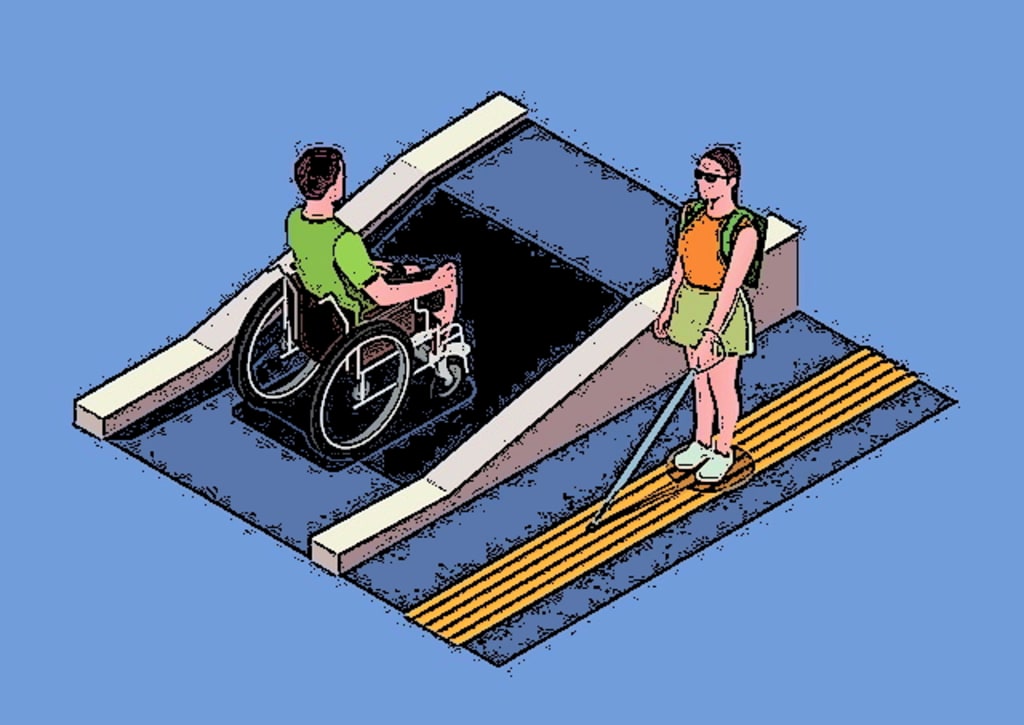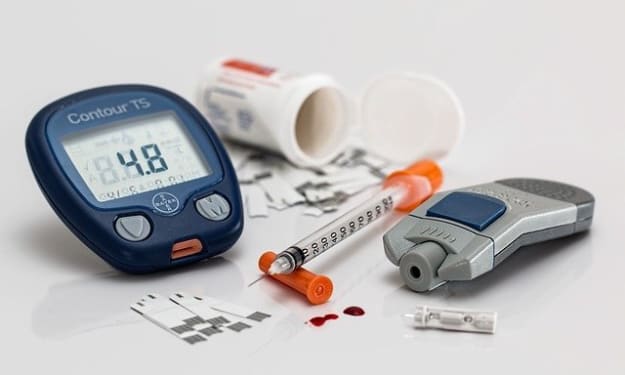Disabled, Disregarded, & Disrespected
An Informative Excerpt

The term ‘Disabled’ can often imply a variety of meanings. Does it mean unable? Limited? Perhaps in some translation it means incapable. Or maybe incompetent.
According to the Americans with Disabilities Act (ADA), “an individual with a disability is defined by the ADA as a person who has a physical or mental impairment that substantially limits one or more major life activities, a person who has a history or record of such an impairment, or a person who is perceived by others as having such an impairment.” Furthermore, “the ADA does not specifically name all of the impairments that are covered.” (https://www.ada.gov/cguide.htm#anchor62335)
The fact that this act covers such a wide variety of possibilities, creates potential for enormous opportunity for people to take advantage of the act’s provisions. Is that good or bad? It may be good in the sense that it allows for people who are truly disabled to receive greatly needed assistance. But it also permits the “bad apples” of our society to swindle their way into feeding their laziness instead of a true disability.
Moreover, the element of the ADA stating that the act itself ‘does not specifically name all of the impairments’ which are to be considered and covered as a disability, is a bit of a conundrum in itself. This statement also provides for openness and flexibility when defining and accommodating a disability; thus, once again making resources available for the good, the bad, and the deceitful.
After a bit of research, I have discovered a common list of physical and psychological ailments which are considered the most prevalent disabilities acknowledged by society:
Deafness Schizophrenia Blindness Obsessive-compulsive disorder
Diabetes Post-traumatic stress disorder Cancer Bipolar disorder
Epilepsy Major depressive disorder Intellectual disabilities
Muscular dystrophy Partial or completely missing limbs
Multiple sclerosis HIV infection Autism Cerebral palsy
Mobility impairments requiring the use of a wheel chair
As a Type 1 diabetic and an individual who struggles with neurological hearing loss (deafness). I am considered “Disabled”. I was diagnosed with Type 1 Diabetes in 2017 and have worn hearing aides in both ears since 2009. I underwent Cochlear Implant surgery in my Right ear June of this year.
While some people may not consider some the items in the above list to be disabling, they all impair and substantially limit life activities. One simply needs to Google the term diabetes or deafness or major depressive disorder, to find causes, signs and symptoms, treatments, and potential outcomes of these diseases and disorders. Once we are familiar with these ailments, it becomes easier to see why they are considered disabling, impairing, and limiting of life’s activities.
My Pet Peeves:
Manners. I find it very unfortunate and aggravating when disabilities are not accommodated or acknowledged by fellow citizens. I’m not talking about sympathetic looks or hand-outs; I’m referring to courtesies.
For instance, parking too close to or even in a “Handicap” parking space. It doesn’t matter if you are only going in for a “quick minute” or that there is not a police officer to catch you. You are essentially creating a situation which makes somebody else’s life harder. An individual with a disability may need that spot while you are in the store or restaurant. Moreover, I think a $100 fine for parking in a handicap spot is laughable. $100 is not enough to deter people nowadays; there should be a steeper price to pay.
Insurance. While it is likely that the majority of you may agree with me that insurance companies are scum, I have a particular bone to pick regarding them. Insurance policies are ridiculously complicated. And expensive? Hell yes!!! Yet they don’t seem to cover everything we need.
For instance, why must we have individual insurance policies for dental and vision? Why are those separate? Aren’t clean teeth and good eyesight part of good “health”, and should be covered under “health” insurance? When did our teeth and eyes be declared separate parts from the rest of the human body? On this note, why is there no coverage for hearing health? In order to get insurance coverage or assistance for hearing aids you have to be over the age of 65 or go through special government channels. Why do we not at least have available policies for hearing health? Hearing and speech are, after all, among our most utilized forms of communication.
Disability Payments. What is your immediate thought when you hear the phrase: “They get disability payments.”? Freeloader? Lazy? If those words come to mind, it may be time to shine some light on this subject. Disability money comes from mandatory payroll taxes which are collected from employers and employees by the state and federal governments.
If you receive a paycheck from your employer, you’ll notice that there are several areas where “your” money is being distributed. One of those areas is labeled ‘Taxes’. Disability money is required funding that has already been collected from an individual’s paycheck, as well as from the employer’s payroll taxes.
Disability payments are NOT GOVERNMENT HAND-OUTS. They come from a built-in subsidy used to provide for individuals with limited abilities.
Without disability payments, many of these disabled individuals would not be able to survive or provide any type of contribution to society. Because of these payments, disabled individuals are able to go to the grocery store, purchase gas for their car, and participate in societal functions. With the assistance of this money, they can remain life-contributing members of the communities they live in.
Furthermore, disability moneys are not easily obtained. After having my cochlear implant surgery, which has left me completely deaf in my right ear, I have been required to wait 6 months before my first disability payment. The government essentially wants you to “prove” that you are disabled. There are people who spend months, even years, trying to get the government to realize how debilitating their disease or disorder is. Many times, it is necessary to hire a lawyer to plead your case. In all honesty, I’m pretty sure that the government hopes you die before you get the green light for disability payments. We should once again remember the ambiguous tone which surrounds the Americans with Disabilities Act (ADA), and how it lacks specifics which could lessen the “burden of proof” on the disabled.
Employment. When applying for a job, employers will often ask you to fill out forms indicating gender, ethnicity, veteran status, and whether you have a disability or not. Technically you do not have to answer these questions. However, if you don’t answer the questions employers often feel that you are hiding something. If you do happen to answer the question of whether or not you have a disability, according to the list they reference, which likely looks like the one I provided above, think long and hard about how the employer may view it.
If you answer ‘Yes’, the employer may see you as a liability who will need “reasonable accommodation” under the ADA. Not likely something an employer wants to be burdened with. If you answer ‘No’, and actually have a disability, be prepared to address your limitations later on in the interview or on-the-job. You may want to have an explanation regarding the condition so that you are not caught lying on your application. I always select the ‘I don’t wish to answer’ option. I do not feel it is appropriate for them to ask the question in the first place. I feel that my credentials are enough to speak for themselves and the parameters of the job are either doable or not, based on self-knowledge of my own capabilities.
The U. S. Equal Employment Opportunity Commission provides information on employment permissions in this regard: https://www.eeoc.gov/laws/guidance/your-employment-rights-individual-disability
Final Thoughts…
As a healthcare provider of 13 years, and an individual who experiences the daily struggles of having disabilities, I feel that the disabled members of our society should at least be acknowledged. Given the many, many diseases and disorders present in our world, the likelihood of you knowing someone with a disability, or even having one yourself, is unbelievably high.
Lastly, please keep in mind that even though you may not be able to SEE a disability, that doesn’t mean it isn’t THERE.
About the Creator
Megan Bald
Medical Professional turned writer.






Comments
There are no comments for this story
Be the first to respond and start the conversation.